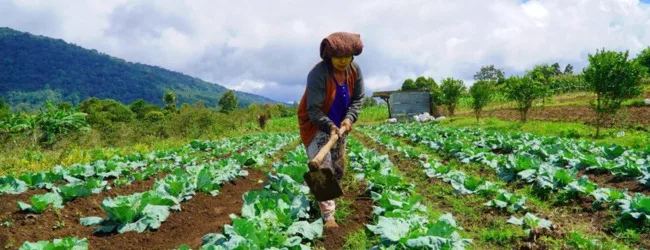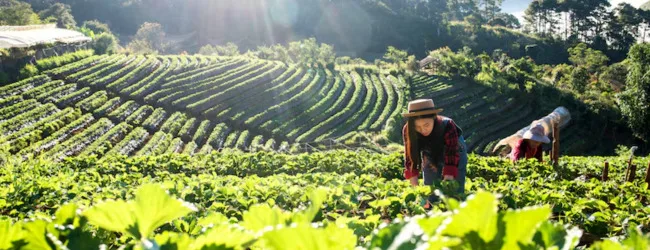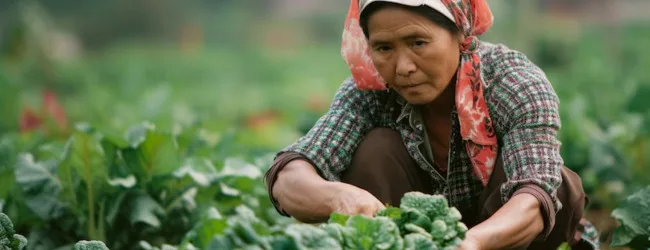Table of contents
- What is Organic Farming?
- 🇮🇳 Why Sikkim Chose Organic Farming
- Timeline: How Sikkim Became Fully Organic
- Steps Taken by the Sikkim Government
- Crops Grown Under Organic Farming in Sikkim
- Impact of Organic Farming in Sikkim
- Global Recognition
- Sikkim in 2025: Organic Farming Status
- Organic Market & Branding
- Conclusion
- Frequently Asked Questions (FAQs)
In 2016, Sikkim became the first fully organic state in India, setting a global benchmark in sustainable agriculture. By 2025, Sikkim will continue to thrive as a model for organic farming, benefiting farmers, consumers, and the environment. This success didn’t happen overnight—it took years of strong political will, farmer training, and innovative policy implementation. Let’s explore how this Himalayan state turned its fields into organic gold.
What is Organic Farming?

Organic farming is a method of growing crops and raising livestock without synthetic chemicals, pesticides, fertilisers, or genetically modified organisms (GMOs).
Instead, it uses natural compost, crop rotation, biological pest control, and green manure to maintain soil health and biodiversity.
✅ Key Features of Organic Farming:
- No chemical pesticides or fertilisers.
- Use of compost, cow dung, and natural nutrients.
- Promotion of biodiversity.
- Emphasis on soil health and water conservation.
- GMO-free crop production.
🇮🇳 Why Sikkim Chose Organic Farming
Major Reasons:
- Environmental Protection: Reduce soil and water pollution in the ecologically sensitive Himalayan zone.
- Tourism Boost: Sikkim’s image as a clean and green destination added value to its tourism industry.
- Farmer Health: Eliminate harmful chemical exposure for farmers.
- Consumer Demand: Rising global demand for chemical-free food.
Timeline: How Sikkim Became Fully Organic
| Year | Milestone |
|---|---|
| 2003 | Ban on chemical fertilisers and pesticides. |
| 2010 | Sikkim was declared 100% organic by the Indian PM. |
| 2014 | Sikkim Organic Policy implemented in full force. |
| 2016 | The state government announced the Organic Mission. |
| 2020–25 | State government announced the Organic Mission. |
💡 Pro Tip: If you want to start a Business but have too many doubts, connect with a Business expert from Boss Wallah for guidance – Check Out
Steps Taken by the Sikkim Government
1. Policy-Level Changes
- Sikkim Organic Mission (SOM) was launched in 2003.
- Subsidies for organic certification and composting units.
- Strict ban on the sale/use of chemical inputs.
2. Farmer Training & Support
- 66,000+ farmers trained in organic practices.
- Field-level demonstrations and exposure visits.
- Distribution of organic seeds and bio-input kits.
3. Infrastructure Development
- Setting up Organic Fertiliser Units.
- Building collection centres and cold storage units.
- Support for local and export-level organic marketing.
Crops Grown Under Organic Farming in Sikkim
| Crop Type | Examples |
|---|---|
| Cereals | Rice, Maize |
| Pulses | Lentils, Beans |
| Vegetables | Cabbage, Cauliflower, Peas |
| Fruits | Kiwi, Orange, Guava |
| Spices | Large Cardamom (Sikkim’s flagship organic crop) |
ALSO READ | Top 10 Organic Farming States in India: Organic Hotspots of the Country
Impact of Organic Farming in Sikkim

🔹 Economic Benefits
- Farmers saw a 20–30% rise in income due to premium pricing.
- Boost in agro-tourism and brand image.
🔹 Environmental Benefits
- Increased soil fertility and reduced erosion.
- Water bodies are free from toxic chemical residues.
🔹 Social Benefits
- Improved health of farming communities.
- Empowered local women in agri-business and self-help groups.
Global Recognition
- Sikkim won the UN’s Future Policy Gold Award in 2018 for being the world’s first organic state.
- A case study in international organic agriculture seminars.
- Cited by FAO as a model for developing nations.
Sikkim in 2025: Organic Farming Status
| Indicator | 2025 Data |
|---|---|
| Certified Organic Land | 76,000 hectares |
| Organic Farmers | Over 75,000 |
| Organic Export Value | ₹110+ Crore/year |
| Agro-tourism Growth | 40% higher than 2016 |
ALSO READ | Organic Manure Production for Small Farms: A Step-by-Step Guide in India
Organic Market & Branding

- Sikkim launched its own organic product brand, “Sikkim Organic”.
- Sold across India in organic stores and online platforms.
- Organic vegetables, spices, and herbal teas are top-selling items.
🧠 Noteworthy Point:
Sikkim is the first state in the world to convert its entire farming area into certified organic land.
Need Expert Guidance?
Starting a business can be challenging, but you don’t have to do it alone! At Boss Wallah, our 2,000+ business experts are ready to provide valuable insights and guidance. Whether you need help with marketing, finance, sourcing, or any other area of any business, our business experts are here to help you succeed
Confused about Which Business to Start?
Want to start your own business but unsure which one to choose? Explore Boss Wallah, where you’ll find 500+ courses by successful business owners, featuring practical, step-by-step guides on starting and growing various businesses.
Find your perfect business idea today
Conclusion
Sikkim’s journey towards organic farming is not just an agricultural achievement—it’s a story of sustainability, policy innovation, and community empowerment. By 2025, Sikkim stands as a beacon for the rest of India and the world, proving that ecological balance and economic prosperity can go hand in hand through organic agriculture.
Frequently Asked Questions (FAQs)
Because all agricultural land in Sikkim is certified organic, with a complete ban on chemical farming inputs.
In 2016, Sikkim was officially declared 100% organic.
A government initiative launched in 2003 to convert the state into fully organic through farmer training, input support, and strict regulation
Rice, maize, vegetables, fruits, and especially large cardamom.
Over 75,000 farmers are part of Sikkim’s organic farming ecosystem as of 2025.
It improves soil health, reduces pollution, and promotes biodiversity.
Yes, due to reduced input costs and higher market prices for organic produce.
Yes, Sikkim promotes agro-tourism and offers organic farm stays and tours.
Yes, products are sold in organic markets across India and are also exported.
Yes, with strong political support, community involvement, and a policy framework, other states can follow Sikkim’s example.


